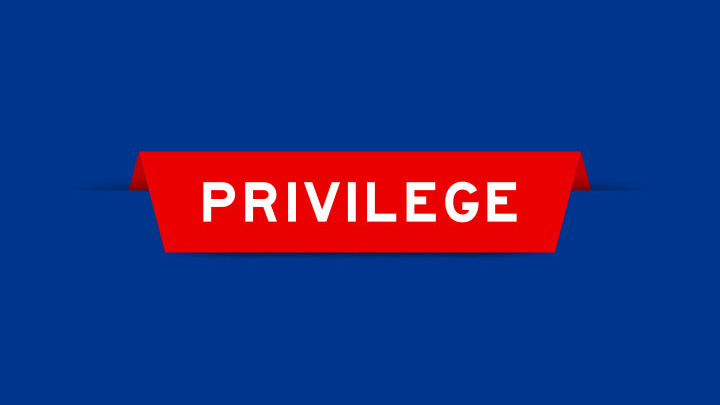Ministerial Decision on the measures against violence and harassment at work implementing Law 4808/2021
Part II of the New Labour Law 4808/2021 enacted the employer’s obligation to cater for the prevention and confrontation of any kind of violence and harassment at work. Inter alia, it is provided that companies employing more than twenty (20) employees bear the obligation to adopt policies both on the confrontation of violence and harassment at work (ar. 9) and on the management of relevant complaints (ar. 10).
On the legal basis of ar. 22 para. 1 of said New Labor Law, the Minister of Labour and Social Affairs issued the Ministerial Decision (MA) that specifies the obligation of the companies-employers, as well as it includes relevant sample policies. The MA was published in the Government Gazette on 1st November 2021.
1. Scope of the protection
As far as Temporary Work Agencies (TWA) (In Greek: Επιχειρήσεις Προσωρινής Απασχόλησης) are concerned, the MA clarifies that their employees are counted for both the TWA and the user company in order for the obligation to draft the policies to be activated, i.e., to meet the threshold of twenty (20) employees).
It is also specified that temporary agency employees are protected under the regime offered by the user company-employer, which is obliged to take measures in case of infringement of the prohibitions against violence and harassment. The TWA should be notified on the incident as well.
2. Consultation process on policies within the company
The MA specifies all three ways of consultation between employers and employees for the initial adoption of policies, as well as for their potential amendment, as follows:
- If the company-employer bears the obligation to draft an Employment Regulation, the policies against violence and harassment are embedded in it, and are adopted pursuant to its own process. Stipulations as to disciplinary issues should also be made.
- If the company-employer does not bear the above obligation for an Employment Regulation, then it submits a policy draft/proposal for collective bargaining within the business with the employees.
- In any other case, the company-employee drafts the policies after consulting with the representatives of the trade unions or works councils on its initial draft/proposal. In the absence of the latter, the company-employer should inform the employees on the forthcoming drafting of the policies, posting the draft/proposal in the workplace to receive feedback.
Indicatively, the MA provides that during the consultation process the parties may discuss on their rights and obligations in case of incidents of violence and harassment, on the information process, on the receipt and investigation of complaints, as well as on the fields and workings arrangements that pose the greater risk for violence and harassment.
The consultation process and the subsequent adoption of the policies are finalized upon informing to that effect on behalf of the company-employer, i.e., through posting either in the workplace or in the company’s website. As a good practice, the MA also recommends that the company-employer integrate the policies against violence and harassment into other policies on socially sensitive matters, such as, but not limited to, policies on the promotion of opportunities and equal treatment, policies against discrimination at work, policies on gender equality etc.
3. Specification of the content of the policies
The MA specifies the minimum content required by law for both the policy on the confrontation of violence and harassment of ar. 9 (under A) and for the policy on the management of relevant complaints of ar. 10 (under B).
A. Content for the policy on the confrontation of violence and harassment
- To estimate the risk for violence and harassment, the MA holds that particular factors are taken into account; particularly, the nature of business activity, the working position, the sex, the race, the age, and in general differentiating conditions. Tools such as the Online Interactive Risk Assessment of the European Agency for Safety and Health at Work may be used for that purpose.
- As measures for the prevention, control, restriction, and confrontation of the abovementioned risks, the company-employer may encourage a business atmosphere where respect for human dignity, collaboration, and mutual help are basic principles, as well as it may ensure that all employees have the necessary training and information to exert their duties, particularly for high-risk positions. Furthermore, technical measures may be taken such as alerts, better lighting etc. Lastly, the company-employer may organize actions to raise the awareness and sensitivity of employees on the confrontation of violence and harassment at work and on vulnerable groups, as well as establish procedures to assess the effectiveness of the enacted policies.
- The company-employer is obliged to declare its zero tolerance towards incidents of violence and harassment at work.
- As to the information obligation and to the employer’s and employees’ obligation in case of incidents of violence and harassment, the policy should inform the complainant on its entitlements, such as its right to have recourse to state courts, to file a complaint before the competent Labor Inspectorate, to file a complaint before the Citizen’s Ombudsman, and to file a complaint within the business.
- The policy should determine a person within the company who will be in charge to inform and guide the employees on issues pertaining to the confrontation of violence and harassment at work.
- As to the victims of family violence, the MA refers that the company-employer may take measures in the context of corporate social responsibility, such as the provision of special leaves or flexible working arrangements.
B. Content of the policy on the management of complaints against violence and harassment at work
- The policy should determine the person before whom the complaints will be filed. That person will also be in charge of investigating and managing the complaints for incidents of violence and harassment at work.
- The MA provides that the company-employer and the person-in-charge are bound to receive the complaints, as well as immediately investigating them, by impartiality, respect for human dignity, observance of confidentiality, and protection of personal data.
- The company-employer is bound to assist and provide all relevant information to the competent authorities – public, administrative, judicial – which will investigate the complaint. Any information gathered should be kept by the company-employer in file.
4. Sample policies provided by the MA
The SO includes indicative templates for both policies that will be drafted by obligated companies. These templates include the minimum statutory obligations of companies-employers (e.g., risk assessment, taking measures, determination of a person-in-charge, commitment to the prohibition of retaliation, etc.) which must be fulfilled pursuant to the specifications set out in the MA, which practically means that companies-employers may deviate from them, but only by providing more favorable conditions for confronting incidents of violence and harassment and for managing complaints.



